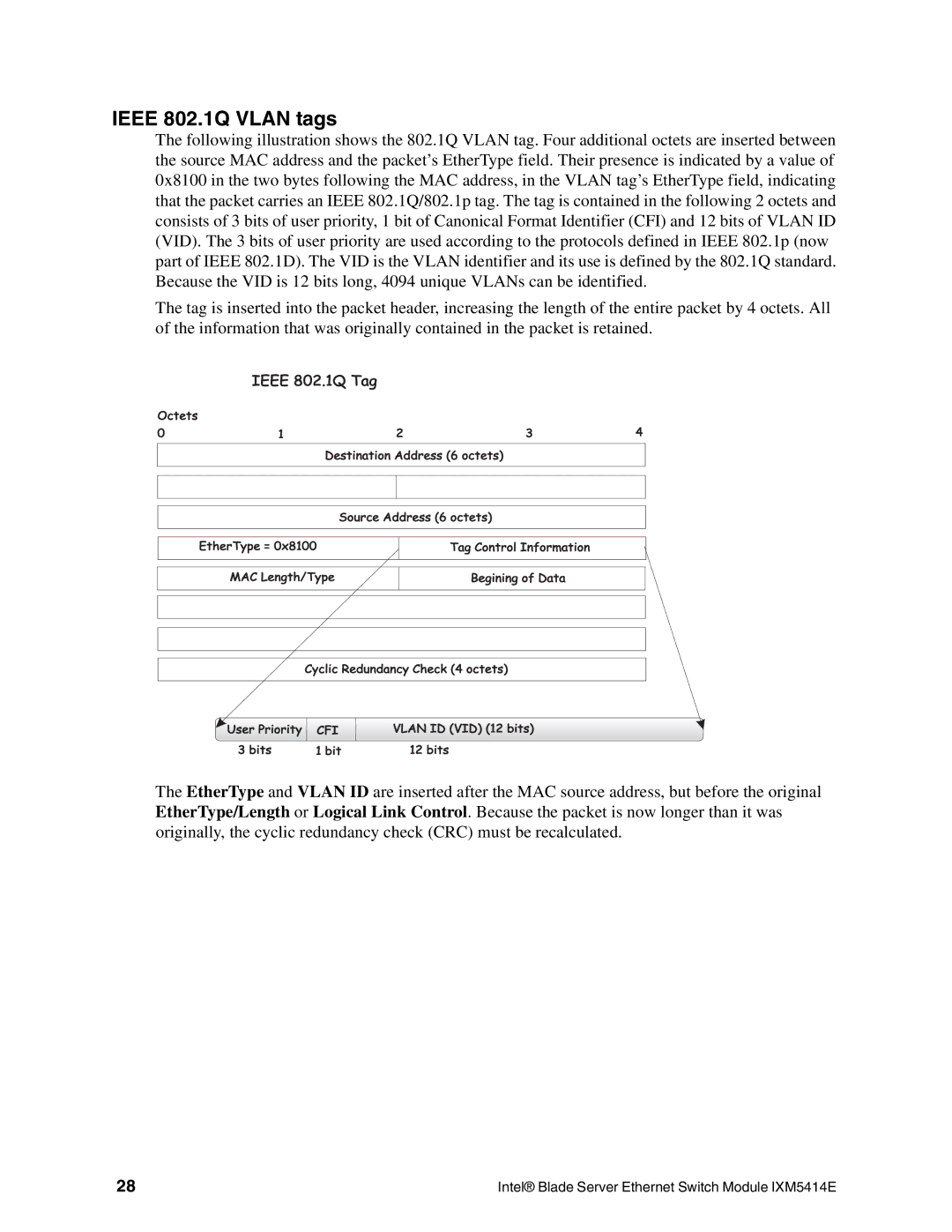
IEEE 802.1Q VLAN tags
The following illustration shows the 802.1Q VLAN tag. Four additional octets are inserted between the source MAC address and the packet’s EtherType field. Their presence is indicated by a value of 0x8100 in the two bytes following the MAC address, in the VLAN tag’s EtherType field, indicating that the packet carries an IEEE 802.1Q/802.1p tag. The tag is contained in the following 2 octets and consists of 3 bits of user priority, 1 bit of Canonical Format Identifier (CFI) and 12 bits of VLAN ID (VID). The 3 bits of user priority are used according to the protocols defined in IEEE 802.1p (now part of IEEE 802.1D). The VID is the VLAN identifier and its use is defined by the 802.1Q standard. Because the VID is 12 bits long, 4094 unique VLANs can be identified.
The tag is inserted into the packet header, increasing the length of the entire packet by 4 octets. All of the information that was originally contained in the packet is retained.
IEEE 802.1Q Tag
Octets
0 | 1 | 2 | 3 | 4 |
Destination Address (6 octets)
Source Address (6 octets)
EtherType = 0x8100
Tag Control Information
MAC Length/Type
Begining of Data
Cyclic Redundancy Check (4 octets)
User Priority
3bits
CFI
1 bit
VLAN ID (VID) (12 bits)
12bits
The EtherType and VLAN ID are inserted after the MAC source address, but before the original EtherType/Length or Logical Link Control. Because the packet is now longer than it was originally, the cyclic redundancy check (CRC) must be recalculated.
28 | Intel® Blade Server Ethernet Switch Module IXM5414E |
